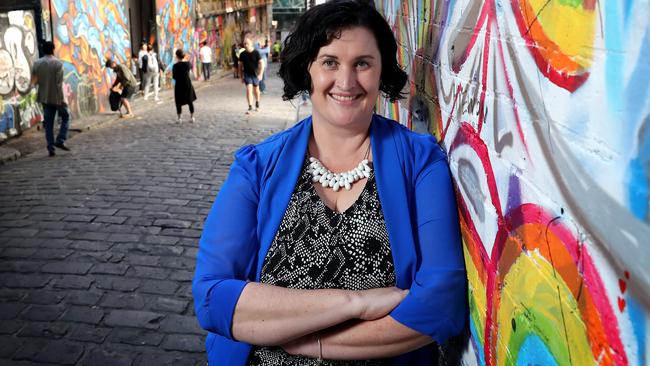Anna Hacker: Tears, fears and estate planning
Anna Hacker is Australian Unity Trustees’ director of estate planning.

Most people either find estate planning really dry or really scary. How do you deal with that?
You have to learn to almost be like a therapist because clients can have such varied reactions. Some people are very disinterested and they see it as a dry, procedural matter. But I’ve had to deal with situations where people think someone in their family is going to challenge the will, or they need to provide for a child with a disability or an addiction. And there are some clients who you can’t even discuss death with for cultural reasons, you just can’t bring the word up. Those are tough conversations to have. We always have tissues in the room.
At what age should readers start thinking about their estate planning?
I always say it is a great 18th birthday present (laughs). You should start thinking about this as soon as you have any assets of significance and that can be really early.
Is it true that wills don’t matter any more and it’s all about superannuation these days?
I think that’s an overestimation of the value of super. The family home, though, will be out of super, for example, and that’s a pretty big asset. But the bulk of a person’s wealth otherwise will be their super once they pass away and it’s very important in estate planning.
What percentage of your clients have family trusts?
Probably a quarter, maybe up to a third, of our clients have family trusts and it’s usually because they have their own business or more significant wealth. But we find 95 per cent of our clients choose a testamentary trust; it is the only way to ensure you get tax minimisation, asset protection and more flexibility than family trusts.
Has the introduction of same-sex marriage shaken up estate planning much?
There has been a slight change in that we just have to say to same-sex couples: “You need to think about what you do if you get married.” Because if they get married, or divorced, then their previous estate planning documents may become invalid. We haven’t been calling gay couples saying “remember about your estate documents” (laughs) but it is something we will have to talk about more with them because it just wasn’t on the table before.
How about this brave new world of social media?
The biggest change is that people are talking about their social media accounts as a possession more than their old photo albums. They want to make sure someone has access, or, as is more the case, someone doesn’t have access to their Facebook account when they die.
Tell me one big change in this area I should know?
Cryptocurrency is the big one. There’s so much complexity in having assets that are … where are they? (laughs) We’re used to dealing with movables like a bank account or an immovable like a house. But where is cryptocurrency? Where is the registered office for it?
So is it a question of “where will my bitcoin go when I die”?
I’d love to say there’s an easy solution but we’re going to need the digital space to deal with protecting wallet details but still having enough protection so it can only be accessed when someone dies or loses capacity. There might also need to be more government involvement.
We usually ask about people’s personal investments at this point but I have to ask … what is your estate plan?
I’ve had a will for a long time and I’ve made sure my husband has one too (laughs). I realised early on I couldn’t tell my clients to get a will if I didn’t have one. I also made sure my parents got theirs done in case they lose their capacity. We’ve put structures in to protect assets and, most importantly, we’ve thought about the guardianship of our kids. But you can get caught up in the “what ifs”.
How did you get involved in estate planning?
I was training to be a lawyer and I was really interested in human rights, and I took a particular interest in elder abuse. And that’s what I see estate planning as: a prevention of later problems when someone loses that capacity so their wishes don’t get abused.
What do you say to someone who’s looking at embarking on a financial or legal career and thinks estate planning might be a bit dour?
It’s so much more than writing wills and powers of attorney. You’re dealing with family dynamics, personal crises and sometimes you are told people’s deepest, darkest secrets.
You also really need that financial know-how to deal with tax implications and investments. It’s a great combination for someone who’s interested in both people and finance. But it’s not for the faint-hearted.



